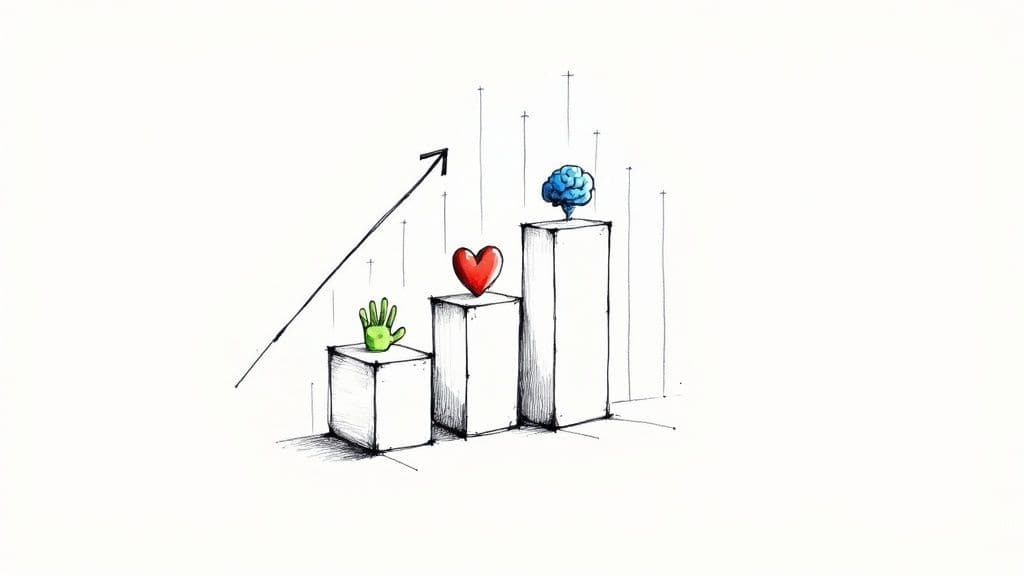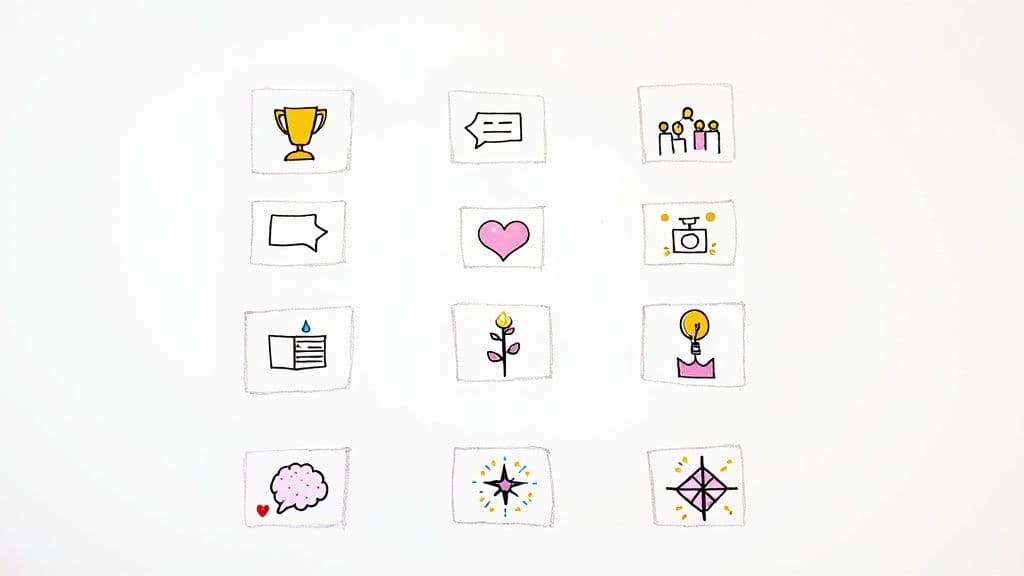Mastering Focus: The Key to Accelerating Independent Learning
Discover science-backed techniques to improve focus, beat distractions, and accelerate learning. From brain hacks to productivity tools for teens.
Your teenage brain is remarkable. It's rewiring itself, optimizing connections, and adapting faster than it ever will again. This neuroplasticity makes you a learning machine—but it comes with a catch.
Why Your Brain Is Both Your Greatest Asset and Biggest Challenge
The prefrontal cortex, your brain's CEO responsible for planning and impulse control, won't fully mature until your mid-20s. Meanwhile, you're producing melatonin later at night, making you naturally wired to stay up late and often miss crucial sleep. The result? A brain primed for learning but vulnerable to distraction.
Here's the truth: focus is not about fighting your brain—it's about working with it.
The Distraction Epidemic
Modern learning faces an unprecedented challenge. Two-thirds of 15-year-olds admit their smartphones distract them during class. The average teen receives 273 notifications per day, many during school hours.
This isn't just about willpower. Digital distractions activate your brain's reward circuits, creating a neurochemical pull that's genuinely hard to resist. Social media, games, and notifications trigger dopamine releases that make focused work feel boring by comparison.
The solution isn't to become a monk. It's to design your environment for success.
The Focus Toolkit: What Actually Works
The Pomodoro Principle
Work in 25-minute focused bursts, then take 5-minute breaks. This isn't arbitrary—research shows structured breaks boost both focus and mood. Students using Pomodoro-style breaks completed tasks just as well in less time compared to random breaks.
Your brain operates in natural attention cycles. The Pomodoro technique aligns with these rhythms instead of fighting them.
Habit Stacking
Link new focus habits to existing routines. "After I eat breakfast, I review my hardest subject for 30 minutes." This leverages the automation your brain has already built around established behaviors.
Charles Duhigg calls this "the power of small starts." You're not creating willpower from scratch—you're borrowing momentum from habits that already work.
Time-Blocking
Schedule specific subjects into dedicated calendar blocks. Assign 50-90 minute slots for focused work, with short gaps between blocks. This eliminates decision fatigue about what to study next.
When you see your day mapped out, you resist the urge to drift. You know exactly when you work and when you rest.
Single-Tasking Over Multitasking
Multitasking is rapid task-switching, and every switch incurs a cognitive cost. Studies show it can take over 20 minutes to fully refocus after an interruption.
Instead of half-writing an essay while half-watching TikTok, give one subject your undivided attention. Quality and speed both improve when you single-task.
Building Your Focus System with SprintDojo
Here's where most productivity advice fails: it gives you techniques but no system to maintain them. That's where SprintDojo becomes your secret weapon.
SprintDojo's framework turns focus-building into a game you can win daily. By logging daily wins—even small ones like completing one Pomodoro session—you trigger the same dopamine hits that make social media addictive, but channel them toward productive habits.
The weekly reflection (SprintDojo's "Weekly Truth") acts like having a personal coach. Research shows guided reflection improves academic performance significantly. You're not just building habits; you're building self-awareness about what actually works for your unique learning style.
Most importantly, SprintDojo connects your daily focus practice to your bigger goals—your North Star. When you see how today's focused study session connects to your dream of becoming a game developer or doctor, every Pomodoro has meaning beyond just getting through homework.
The Environment Design
Digital Boundaries
Use apps like Freedom or Cold Turkey to block distracting websites during study blocks. Forest turns focus time into a game—your virtual tree dies if you leave the app.
Physical Setup
Keep your study space clean and well-lit. Use headphones with white noise or instrumental music to signal "work mode" to your brain. Clutter literally scatters attention.
The Sleep Foundation
Aim for 8-10 hours per night. Turn off screens an hour before bed—blue light delays melatonin production. Well-rested teens pay better attention, period.
The Science of Sustainable Focus
Exercise Your Brain
Even short walks boost brain blood flow. Regular physical activity significantly enhances cognitive function in adolescents—attention, memory, and processing speed all improve.
Smart Nutrition
Stay hydrated and eat steady fuel: nuts, fruit, anything that keeps blood sugar stable. Avoid the crash-and-burn cycle of energy drinks and junk food.
Morning Rituals
Start each day with a consistent routine and tackle your hardest task first while energy is high. This "eat the frog" approach uses willpower when it's strongest.
Motivation vs. Discipline
Motivation gets you started. Discipline keeps you going when motivation fades.
Find your personal "why." What do you want to build, achieve, or become? Write it down. Connecting daily focus practice to future dreams transforms homework from obligation into training.
Break big projects into tiny tasks. Instead of "write essay," try "outline three main points." Small victories build momentum and counter the anxiety that feeds procrastination.
Remember: procrastination usually hides stress or perfectionism, not laziness. The cure is starting small and celebrating progress.
The Compound Effect
Focus is a skill that compounds. Each day you practice sustained attention, you're literally rewiring your brain. Neural pathways strengthen with use, making focus feel more natural over time.
The teens who master focus don't just get better grades—they develop the superpower of deep work that will separate them from their peers for life. In a world full of distractions, the ability to focus deeply becomes increasingly rare and valuable.
Your Next Move
Start small. Pick one technique from this article—maybe Pomodoro timing or setting up a distraction-free study space. Practice it for one week. Notice what changes.
Then add another technique. Build your focus systematically, like leveling up in a game.
Your brain is already remarkable. With the right systems and environment, you can train it to be unstoppable.
The future belongs to those who can think deeply in a distracted world. That person can be you—starting today.
Sprint Smarter. Forecast Every Week.
Log wins. Build momentum. Let AI show you if you're on track to hit your sprint goal—before it's too late.
Join the waitlist and be the first to unlock predictive clarity for your team.


